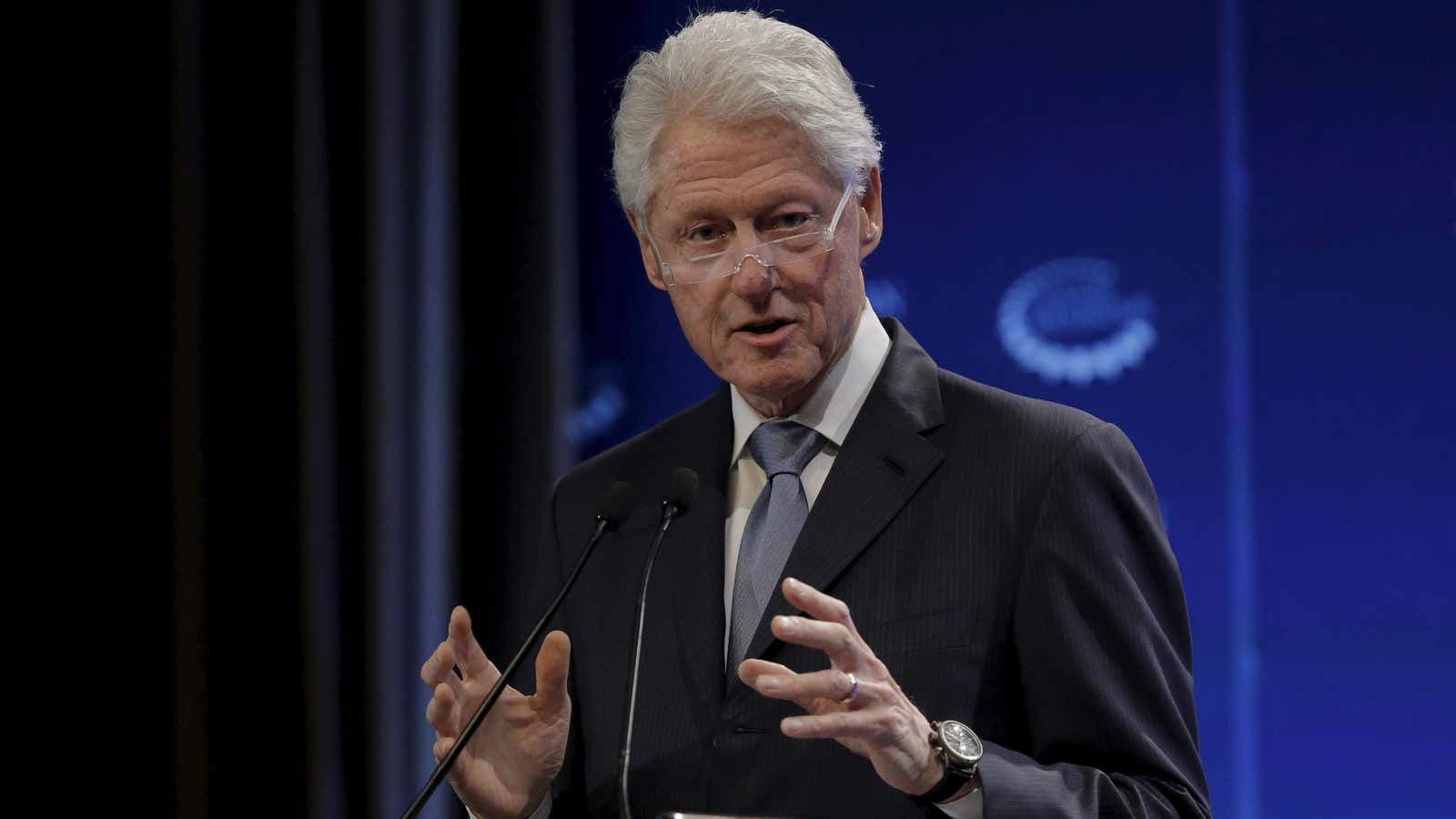The author is the 42nd president of the United States.
Earlier this week, nearly 1,000 leaders representing businesses, labor unions, foundations, community groups, and government at every level spent three days together in Atlanta, Georgia. Out of their wide variety of priorities and political beliefs they discovered shared interests and initiated projects to drive growth and create good jobs across America.
All of this progress took place at the sixth annual Clinton Global Initiative America meeting. CGI America began with the idea that, for all our interesting differences, we Americans still have much more in common and can accomplish much more for our country by working together than by knocking each other down.
CGI America’s model is simple, and built on the success of our CGI Annual Meetings that we’ve held in New York every September since 2005 around the opening of the United Nations General Assembly. What makes CGI unique is that we bring people together from all sectors of society—not just to talk about important challenges, but to pledge to do something to address them. These pledges—called Commitments to Action—can be small or large, but they all must be new, specific, and measurable. CGI does not fund these Commitments to Action, but instead offers a platform for participants to forge partnerships, learn from one another, and explore new ways to make their efforts more effective. This approach is working: Our members have already made more than 3,400 commitments improving over 430 million lives in more than 180 countries.
Since holding our first CGI America meeting in 2011, we’ve seen that there is a hunger for opportunities to work with others toward a stronger future. People and groups with the resources and desire to make change started matching up with those who had the expertise and ability to implement their good ideas. Corporations, governments, and nonprofits, in every imaginable combination, started working together, combining their strengths, and turning ideas into action.
In one of the best examples of this phenomenon that I’ve ever seen, last year at our meeting in Denver we gathered nearly 20 partners at the request of Detroit’s mayor Duggan to try to solve one of his city’s biggest homeownership challenges: the lack of a large-scale second mortgage program that would allow buyers of distressed properties to finance the significant renovations required to live in their homes.
We brought together an amazing group—regional banks, local nonprofits, national foundations, and every level of government. For three days, these organizations holed up together and hammered out a breakthrough solution, called the Detroit Home Mortgage initiative, which will help 1,000 buyers purchase and rehabilitate homes in the city. Many of the partners are located within just a few miles from one another in Detroit, but they had never met together as a group until they came to CGI America. Now the program holds the potential to be replicated in other distressed housing markets across the country. That’s what CGI America is all about.
In another of my favorite commitments, in 2011 the AFL-CIO, American Federation of Teachers, and North America’s Building Trades Unions made a commitment to allocate and deploy $10 billion over five years to invest in US infrastructure projects and energy-efficient retrofits. Those five years have now passed, and groups have well exceeded their goals. They have now allocated $14.5 billion and deployed over $12.4 billion into projects which have already created more than 100,000 good jobs for working people nationwide.
Our meeting this week in Atlanta also produced several outstanding commitments. For example, the historic Ebenezer Baptist Church, home of Dr. Martin Luther King Jr., committed to build on the work of its creation care ministry by embarking on an energy stewardship initiative with multiple partners from various sectors. I have attended Ebenezer several times over the years, and seen firsthand how vital the church is to the surrounding community.
A clean energy startup by the name of BlocPower also recognized the important role that Ebenezer plays for families in Atlanta and is lending its expertise to the church at no charge. Through this partnership, BlocPower will conduct a comprehensive energy audit of the church properties, recommending energy savings and solar generation measures. In support of the building upgrades, Ebenezer will also partner with Green Faith to design an educational program emphasizing how congregants can implement energy efficiency at home. This will deliver both environmental and economic benefits to Atlanta residents.
There is no single solution for the challenges America faces, but there are countless things that, in the aggregate, can have a profoundly positive effect. CGI America participants have now made more than 550 commitments that have created or filled more than 320,000 jobs. More than 930,000 people have benefitted from professional skills training. More than 7.5 million metric tons of greenhouse gases have been avoided. More than $1.2 billion in new capital has been invested in small and medium size enterprises. All told, more than 4.9 million lives have been improved.
In a time when so much of our national discourse is focused on division and tearing others down, the efforts of CGI America participants are a powerful reminder that community is still at the core of our character as Americans. People still care what happens to their neighbors and believe that if they have the ability to make a difference, they have an obligation to do so. It’s the very best of who we are, a tradition passed down through the generations and carried here by new and old immigrants alike.
I am proud of the unlikely partnerships that have sprung from the Clinton Global Initiative, and I hope their progress will continue to show others that we can do much more together than any one of us can do alone.
